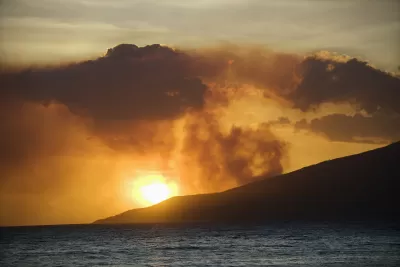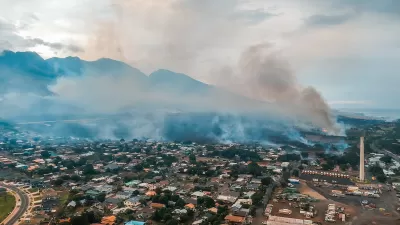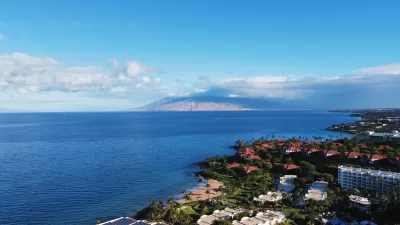Maui County hopes to prevent big oil companies like Exxon from taking their climate change damages case to federal courts, insisting that the lawsuit be heard at the state level.

Maui County is the latest to join nearly two dozen counties in suing big oil companies for damages caused by climate change. According to the lawsuit, companies like ExxonMobil, Chevron, Shell, and ConocoPhillips had knowledge of the destructive greenhouse gas emissions caused by their products as early as the 1970s, yet the companies did nothing to mitigate the negative effects. The county is suing for billions in damages to infrastructure caused by climate change-fueled sea level rise.
"Sea level rise threatens Maui's five commercial harbors and five airports, which will become increasingly exposed to chronic flooding that will disrupt inter-island and transoceanic shipping and travel, impacting the county's economic activities along with its residents and visitors, the lawsuit said," reports David Hasemyer.
Damages caused by climate change are increasing year over year. A record-breaking fire season in 2019 burned nearly 26,000 acres "more than six times the total area burned in 2018," the lawsuit notes.
"Native Hawaiian cultural and historical resources, such as burial grounds and home sites, and the habitat of native and endangered species face destruction by rising seas, wildfires and rising temperatures," Hasemyer relays from the lawsuit.
The fossil fuel giants are pushing to have the case heard in federal court where the precedent stands that Congress should decide the remedies for climate change-related cases. Maui County prefers to be heard in the state court where they are "not constrained by prevailing federal laws that sharply constrain climate-related claims," writes Hasemyer.
FULL STORY: Maui Has Begun the Process of Managed Retreat. It Wants Big Oil to Pay the Cost of Sea Level Rise.

Planetizen Federal Action Tracker
A weekly monitor of how Trump’s orders and actions are impacting planners and planning in America.

San Francisco's School District Spent $105M To Build Affordable Housing for Teachers — And That's Just the Beginning
SFUSD joins a growing list of school districts using their land holdings to address housing affordability challenges faced by their own employees.

The Tiny, Adorable $7,000 Car Turning Japan Onto EVs
The single seat Mibot charges from a regular plug as quickly as an iPad, and is about half the price of an average EV.

Seattle's Plan for Adopting Driverless Cars
Equity, safety, accessibility and affordability are front of mind as the city prepares for robotaxis and other autonomous vehicles.

As Trump Phases Out FEMA, Is It Time to Flee the Floodplains?
With less federal funding available for disaster relief efforts, the need to relocate at-risk communities is more urgent than ever.

With Protected Lanes, 460% More People Commute by Bike
For those needing more ammo, more data proving what we already knew is here.
Urban Design for Planners 1: Software Tools
This six-course series explores essential urban design concepts using open source software and equips planners with the tools they need to participate fully in the urban design process.
Planning for Universal Design
Learn the tools for implementing Universal Design in planning regulations.
Smith Gee Studio
City of Charlotte
City of Camden Redevelopment Agency
City of Astoria
Transportation Research & Education Center (TREC) at Portland State University
US High Speed Rail Association
City of Camden Redevelopment Agency
Municipality of Princeton (NJ)





























